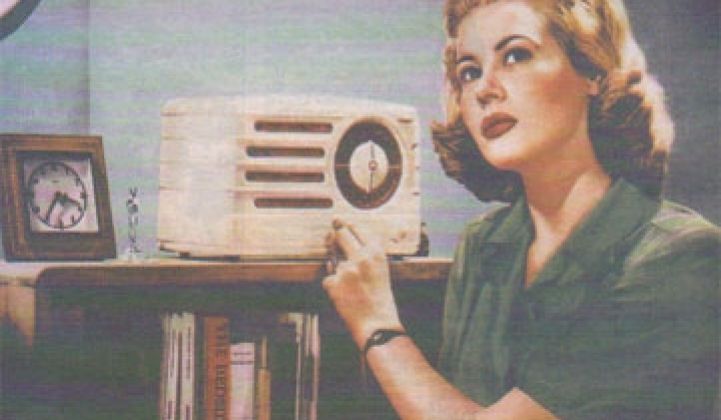CBC Radio, Canada's national broadcaster, will allow e-Radio to use its nationwide frequencies to test out a system for curbing power in homes.
Controlling thermostats and potentially other devices through the radio isn't the most sophisticated or elegant way to automate the home, but it's one of the easier ones to implement. The CBC covers 99 percent of the population in Canada and the module that goes into thermostats is somewhat cheap.
The system, like similar ones touted by start-ups in America, rely on the Radio Data System, a communications system that lets stations send small amounts of data over FM broadcast signalsHave you ever rented a car in Europe and heard the national traffic report come over the air? Or seen the name of the current song pop up on the small LCD screen of your stereo? That's RDS in action.
In these programs, utilities would either obtain a license for a portion of the RDS spectrum or lease RDS spectrum services from an established broadcaster. Utilities would then encourage their customers to buy thermostats with FM radio modules and agree to participate in demand response programs.
When the utility needs more power, it would send a signal via RDS to the thermostats, which would then ease off the air conditioner to prevent a brown out, Tim Simon, CEO of Golden Power Manufacturing, a Chinese thermostat company, told us last year. Thermostats with a Golden Power module go for around $20.
The downside? It's not two-way. A consumer either participates in the program and a brown-out call or they don't. If consumers unplug their radio modules, the utility loses an ability to conduct effective demand response calls. But it some communities, particularly ones where peak power can really skyrocket because of air conditioning or heating, it could work.



